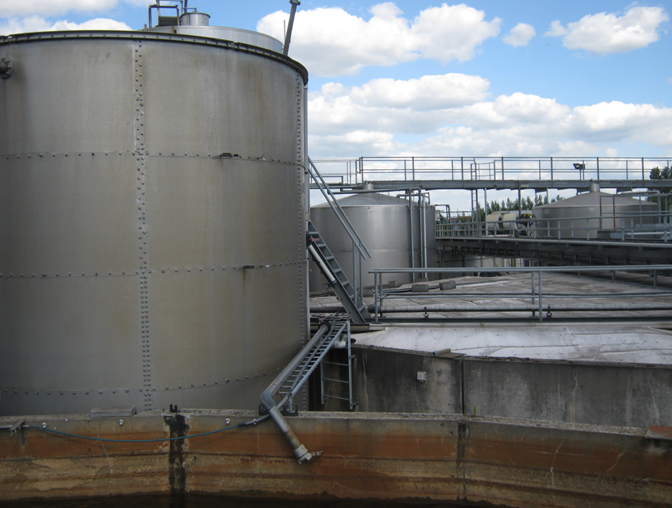The solutions to your waste
Processing wastewaters by physico-chemical and biological treatment
Storage and preparation of waste for incineration
Sludge Dewatering
We process waste from various industrial activities:
• Food and feed mills
• Carpet & Textile Industry
• Chemical companies
• Metal processing and metalworking companies
• Pharmaceutical industry
• Landfill
TACK offers you the most suitable processing methods for the treatment of your waste. We are happy to visit you to overview the process waste and if necessary take a sample with us. After examining the sample you will receive a quotation for processing the waste.
After your approval of this proposal, we plan a date for pickup or delivery of the waste.
This way we are fully committed to a perfect and lawful processing of your waste. After processing you will receive a certificate of treatment.
All waste delivered to or leaving the plants undergo quality checks. These checks are performed in our own or another approved laboratory and are described in procedures and work instructions.
Acceptance
1. Acceptance Procedure:
Before waste can be delivered, the processing option will be checked in the lab. For this purpose a number of parameters are being investigated, as well as the possibility of treatment (physico-chemical, biological, or pretreatment for combustion).
2. With every delivery of waste, the acceptance criteria are being tested, i.e. we check whether the delivered waste is in accordance with the applied waste.
If we determine that this is not the case, we will decide, in consultation with the client, to offer an alternative treatment. This process may take place in our own plant, or at another treatment centre. By confirming deliveries, the waste will be unloaded in the designated unloading point.
3. When disposing of waste from the TACK plant to external processing centres, the delivery criteria of these centers are being verified. The checks are carried our in own laboratory or at an accredited laboratory.
Process description
TACK offers modern and advanced techniques for wastewater treatment.
To ensure continuity and flexibility in the delivery of external waste we have ample unloading facilities :
Our capacity :
• 2 basins of 200m³ each
• 1 basin of 100m³
• 1 buffer basin of 1000 m³
• various unloading containers (1m³ tot 30m³)
Treatment
1. Physico-chemical treatment
This means that when a number of reagents are dosed in the wastewater, flocculation occurs. These flakes are pumped to a filter press, where a separation takes place between the water (effluent), and the sludge (filter cake). This process is used on heavily loaded organic wastewaters or effluents charged with heavy metals or sediments.
2. Biological treatment
After the physico-chemical treatment, the water is pumped into the appropriate buffer tanks, or into the basin.
We also offer the ability to instantly unload in the buffer tank or basin. From here the water is fed to the biology. The biology consists of two aerated basins (where nitrification occurs) and 1 non-aerated compartment (where denitrification occurs).
3. DAF-installation (Dissolved air flotation)
After biological treatment the wastewater is treated in a DAF plant (flotation). An additional physico-chemical treatment in which a complex is added previously, and at higher pH to provide additional precipitation of heavy metals.
4. Sand filter – Activated carbon treatment
This tertiary step ensures that the biologically purified waters are removed from the optionally present residual fractions of contaminants.
This allows us to guarantee our low discharge standards. The purified water is discharged into surface water.
5. Sludge dewatering
TACK provides companies with their own water purification to the dewatering of their formed sludge. For this purpose, this liquid sludge is being collected by the producer or supplied in one of the basins, treated with reagents and is pumped to the filter press.
The resulting effluent is furthermore treated in the wastewater treatment plant.
The formed filter cake is being discharged to incinerators or stored in the sludge storage.
This sludge storage also allows companies that produce centrifuge sludge themselves to supply it to TACK.
The filter cakes are discharged after any treatment to incineration.
To strive to minimize emissions, we deliver continuous efforts and investments. With our scrubber we reduce the odour emissions to the surrounding area.

Contact us
Didn’t find what you are looking for? Have a look at all our services per location.

